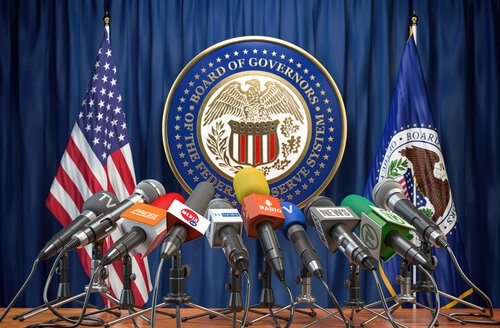Markets are awaiting the Jackson Hole meeting this week, with Federal Reserve Chairman Jerome Powell’s speech set to headline the event in Wyoming, United States this Friday.
The Federal Reserve has historically tried to be as transparent as possible about its intentions well prior to any major monetary policy changes, so this Friday’s meeting could be another chance for rate hawks.
Fed Chair Powell has been very consistent with his take on inflation during the most recent Fed Press Conferences. Powell has told investors the economy in the United States is sold and the Fed are committed to getting inflation back down to 2 percent.
Powell said following the Fed’s July rate hike. “Over coming months, we will be looking for compelling evidence that inflation is moving down, consistent with inflation returning to 2 percent.”
The Fed chair also noted that an unusually large rate hike will only be warranted if inflation jumps again. The recent CPI figures have shown inflation increasing, but year-on-year inflation is still very high.
Ahead of the Jackson Hole meeting, the United States bond market is pricing in a 56.5% chance of another 0.75% rate hike in September. This is a very high probability.
Moreover, the bond market is giving a 43.5% chance the July inflation numbers were good enough for the Fed to dial it back to just a 0.5% hike. So, bets remain on a large hike due to inflation not coming down significantly enough.
Investors should also note that the Federal Reserve has delivered back-to-back rate increases of 0.75% at the previous two policy meetings. It remains very debatable if a third rate increase of 0.75% is possible.
Moreover, a chorus of Fed members have recently said that inflation remains far too high, and that further aggressive policy action is needed this September.
We should also consider that almost all voting members of the Fed are endorsing high-rate increases. This really sets up the stage for a large rate hike in September.
Overall, Fed Chair Powell is likely to acknowledge that inflation pressures have somewhat turned down, however, it is far too early for the US central bank to step back from aggressive action.




